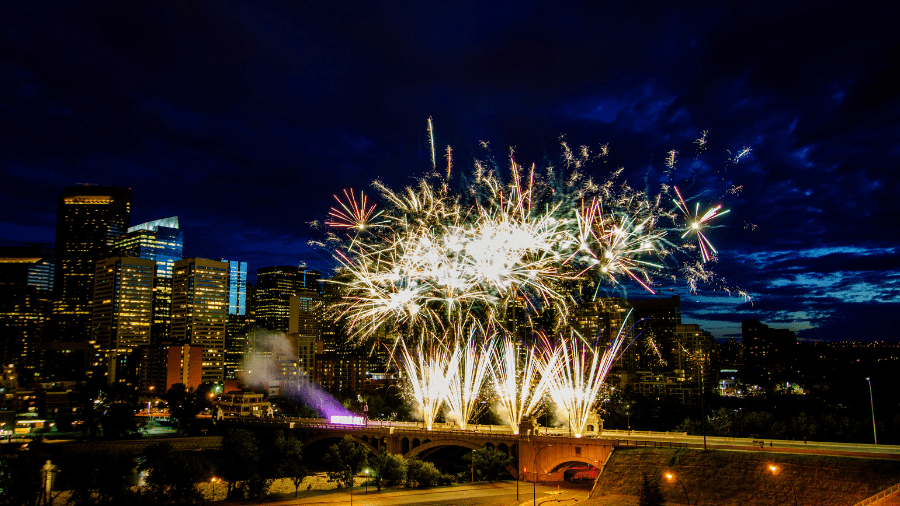This article originally appeared in the National Post.
By Melissa Mbarki, May 25, 2023
Citing “cultural sensitivities … in relation to Truth and Reconciliation,” the City of Calgary is cancelling its annual Canada Day fireworks display, which can be seen across the city, and replacing it with a low-level pyrotechnic show at Fort Calgary.
I’d like to know how many Indigenous groups, people and communities were consulted about this. Many of us look forward to July 1st festivities, including the fireworks. It’s one of the few times when Canadians get together and celebrate the diversity of our country.
Indigenous people are Canadians. We have every right to celebrate Canada Day, even if others choose not to. Removing a holiday or a celebration that unites Canadians is not reconciliation. Actions like this further divide us.
By its very nature, reconciliation needs to include a wide range of voices, especially when a decision is made on behalf of Indigenous people. Hearing just one or a handful of voices, with a particular viewpoint, is not the foundation for long-lasting relationships between Indigenous communities and government.
Attempting to be culturally sensitive on our behalf is placing Indigenous people in a silo. This move makes us look as if we’re anti-Canadian and/or anti-fireworks, which makes no sense at all. Decisions like this pit us against other Canadians, and quite frankly, make us look naïve and uneducated.
We saw this in a tweet by Calgary city councillor Kourtney Penner, who was defending the decision. A tweet that could perhaps have been about the environment or traffic control turned out to be about her views on reconciliation. Penner went on to claim that reversing the fireworks decision would be “upholding colonialism and racism.”
The councillor referenced “calls from the Indigenous community to note that Canada Day historically is for and by white people.” I’ve celebrated Canada since I was child. When did Canada Day become a day of oppression or genocide?
How does this benefit anyone? It’s guaranteed that blowback won’t be directed at Penner; it will be directed toward Indigenous people.
I find it ironic that Penner said this decision was intended to battle colonialism and racism. The city needs to take accountability and say that this was a decision based on the values of municipal councillors and staff and not necessarily the values of Indigenous people.
I would like to direct the city and all those involved in the fireworks cancellation to the Truth and Reconciliation Commission’s 94 calls to action. We also have 231 calls for justice in the final report of the National Inquiry into Missing and Murdered Indigenous Women and Girls (MMIWG). Canada Day is not mentioned in either report.
Are there tangible ways for a city to become involved in reconciliation efforts? Absolutely, and it starts with meaningful dialogue.
That dialogue should include the fact that we are dealing with a high number of Indigenous people who are either homeless or battling housing affordability problems.
Involving Indigenous communities in land-use planning would be a start. Ensuring that we can build affordable housing or shelters would address some of the calls to action in the MMIWG report.
Education might be more inclusive if cities created more spaces for Indigenous institutions like the First Nations University of Canada in Regina.
Investing more in Indigenous outreach programs would help build trust and create a different relationship with Indigenous people.
We need to think outside the box when it comes to reconciliation. Cancelling holidays and special events is probably the easiest — and least helpful — action that could be taken. I equate this gesture to the lowering of the flag in 2021. Two years later and we’re probably not any closer to reconciliation.
Reconciliation is going to take work. Work that can be measured in tangible ways. Work that will make a difference in an Indigenous person’s life. Work that involves proper consultation before cancelling a yearly event cherished by many Canadians, like Canada Day fireworks.
Melissa Mbarki is a policy analyst and outreach co-ordinator at the Macdonald-Laurier Institute, and a member of the Treaty 4 Nation in Saskatchewan.






